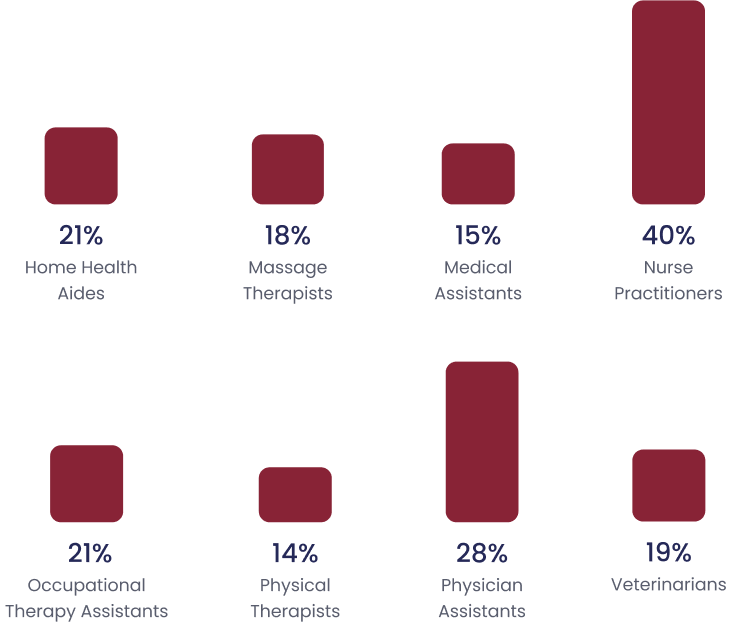Healthcare careers offer diverse opportunities for those passionate about making a difference in people’s lives. From doctors and nurses to technicians and therapists, the field encompasses a wide range of roles catering to various interests and skill sets. You can find over 40 different healthcare professions to explore, each with unique requirements and career outlooks.
As you consider your options, think about the aspects of healthcare that interest you most. Do you want to work directly with patients? Are you fascinated by medical technology? Or perhaps you’re drawn to public health initiatives. By exploring different paths, you can find a career that not only suits your skills but also provides personal fulfillment in improving the health and well-being of others.
Exploring Healthcare Professions
Healthcare offers diverse career paths with opportunities to make a meaningful impact on people’s lives. You can choose from various roles that suit your skills, interests, and educational background.
Assistant Career Paths
As a healthcare assistant, you’ll provide essential support to patients and medical professionals. Your duties may include:
- Assisting with personal care
- Taking vital signs
- Helping with mobility
You can work in hospitals, clinics, or long-term care facilities. This role requires a high school diploma and on-the-job training.
Career progression opportunities include specialized roles like:
Nursing Career Paths
- An associate or bachelor’s degree in nursing
- Successful completion of the NCLEX-RN exam
Technician Career Paths
Popular technician roles include:
Find Your Online Healthcare College
Education and Specialization
Healthcare careers require specific educational paths and specialized training. The journey to becoming a medical professional involves rigorous academic preparation and hands-on clinical experience.
Medical Degrees and Residencies
Nursing Education and Certifications
Credentialing in Allied Health Roles
Did You Know?
The Bureau of Labor Statistics estimates higher growth rates than average in these healthcare fields by the year 2033.

High school graduates earn on average
$899 per week

Bachlelor’s graduates earn on average
$1,493 per week

The Role of Supportive Care
Technicians and Assistants
Patient Advocacy and Home Care
Administrative and Clerical Support
Find Your Online Healthcare College
Advancements and Innovation
Technology Development
Modern Public Health Initiatives
Career Outlook and Opportunities
Job Market Trends
Healthcare occupations are projected to grow much faster than average from 2023 to 2033. Approximately 1.9 million openings are expected annually due to employment growth and worker turnover.
Medical and health services managers earn an average salary of $110,680 per year. Their job outlook is exceptionally strong at 29% growth, much faster than average. Community health workers are also in high demand. These professionals play a vital role in connecting individuals with healthcare services and promoting public health initiatives.
